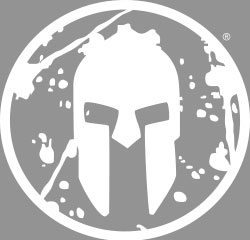The Character-Building Perks of An Obstacle Course for Kids

We all know the benefits of a Spartan Race for adults. But what about a Spartan obstacle course for kids? Does encouraging young kids to get down in the mud or scale over slip walls give them anything other than a great day out?
Absolutely, says Dr. Lara Pence, Spartan’s Chief Mind Doctor. A “great day out” is a benefit all on its own, she says, but there’s a whole host of character-building perks for kids who like to navigate obstacles, too. Here’s Dr. Pence’s lowdown on what a Spartan Race can do for kids from their toddler years through to their teens.
Obstacle Course for Kids: The Breakdown & Benefits
The Toddler Years (1-3 years)
People often ask, how young is too young for kids to compete in a Spartan Race? While the official age for snagging a registration stub is four years old, Pence says a child is never too young to become engaged with fun, physical challenges.
“Obviously, you don’t want to put pressure on your two-year-old to compete at an elite level,” she warns. “But if you’re training for a Spartan race by doing burpees in your living room and your toddler looks interested, encourage them to do their own version of a burpee!” Have fun with it, she says. “It’s the element of play that really matters.”
Additionally, setting up a few secure, fun obstacles in your backyard for your toddler to tackle not only whets their appetite for future Spartan racing, but it’ll help in your child’s development of gross motor skills and help build balance and body awareness.
Early Childhood (4-8 Years Old)
Fun should remain a guiding factor for engaging your kid in actual organized obstacle course for kids, says Pence, whose own children are regulars on the Spartan Race course.
“From a very young age, our brains start making associations that enable us to decide what’s good for us and what’s not good for us,” she explains. “If at an early stage we can encourage our kids to associate the idea of fun with being active, then they’ll instinctively view movement as something they want to do.”
Early childhood can also be a time when routine positive feedback such as the praise we scored for walking or talking begins to wane a little, cutting confidence down a notch.
“We want to make sure we’re creating an arena for our kids to continue building confidence,” says Pence. “And certainly training to overcome the obstacles in an obstacle course for kids can do that.”
Middle Childhood (9-11 years old)
The age of middle childhood can be hard for kids, primarily because it’s when puberty hits.
“Puberty can be a stage that leaves us raw and vulnerable to a lot of insecurity,” says Pence. “It’s also a period when people really begin to develop their identity, asking themselves in a very theoretical way ‘what is my role on the planet’ and ‘where do I belong?’”
As Pence sees it, this is where regularly participation in Spartan’s obstacle course for kids can help youngsters shape a sense of self.
“Spartan has never just been a race,” Pence says. “First and foremost, it’s a community. And not just at the adult level, but at the kids' level, too. Kids who race regularly can call themselves ‘Spartan Racers,’ and there are all these other concrete things—like the headbands, t-shirts, and finisher’s medal—to remind them they can be part of this community. Being in a place with peers has tremendous value for an individual’s self-esteem and self-concept.”
Adolescence (12-18 Years)
“Probably the greatest benefit of a Spartan race for teenagers is the exposure they get to something new, different, and uncomfortable,” says Pence. “And dealing with being uncomfortable is especially important for kids in later adolescence who are coming up against challenging life transitions, like graduating from high school and applying to and then moving on to college,” Pence claims.
Overcoming physical obstacles on a Spartan course can build a resilience that translates onto “the course of life,” says Pence.
“When our brain goes into the a state of being scared and excited to overcome a race obstacle and then we actually overcome it, there’s a ‘high’ from that accomplishment that creates a data point which is then stored in the body," she explains. "So, for teens facing new challenges in their lives—like a really difficult exam coming up—being able to reflect back on that time when they crushed it on the Spartan course makes them think, ‘well, that was really hard and I did it, so there’s no reason why I can’t do this as well.’
It's taught them to push through something difficult, Pence explains. “But they’ve come out the other side, often more courageous," she adds. "Just being able to reflect on and remember their capacity for overcoming obstacles is something they can now carry with them through their lives.”
Psyched to share the Spartan experience with the whole family? Learn more about Spartan Kids and sign up for a race here.
